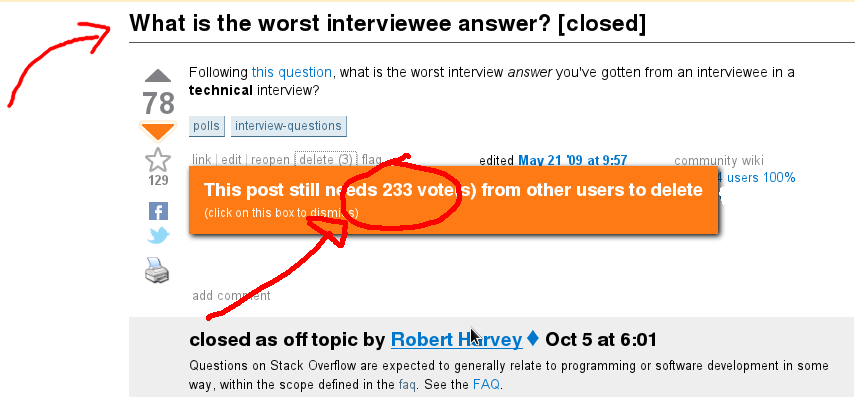So I've been following this deletion discussion for some time now and I think I see a possible resolution.
A lot of the upset from "my stuff being deleted" appears to be the apparent unfairness of a moderator acting unilaterally. As a moderator elsewhere, I certainly understand that these decisions are tough calls to make.
Ideally, moderators are human exception handlers. Jeff said so. Moderators should step in when the community cannot, and otherwise defer to the community.
And so we arise at a bit of a predicament with old, highly upvoted/answered questions. To prevent content being removed, the system increments the number of delete votes required to remove it, one per every 20 upvotes (I think). This is all very well, but it creates the situation where you see this:

233 votes to delete a question basically means only a moderator can make that call. So, welcome to being between the rock and the hard place: if the moderator does not delete, they will face community pressure to delete from those who believe it should be removed; if they do, they will make the twitterverse very angry indeed.
Proposed solution: Cap the deletion votes required to remove any question at 20 (exact number to be worked out).
Justification:
- If a question gets 20 or so deletion votes, chances are community opinion is strong that it should be deleted.
- The deletion vote buffer is still wide enough that a question cannot trivially be removed if it received a lot of votes.
- importantly: the community not moderators, can remove these questions if they deem it so necessary.
- Even more importantly: moderators can justifiably say if you think it should be removed, vote to delete and know they're presenting the user with a way to have their voice heard.
In short, I believe that any SE site is run by us, and we need the ability to do our own cleaning (or not) and take the pressure off the moderators / put them back in the position of protecting us from ourselves (deletion wars).
